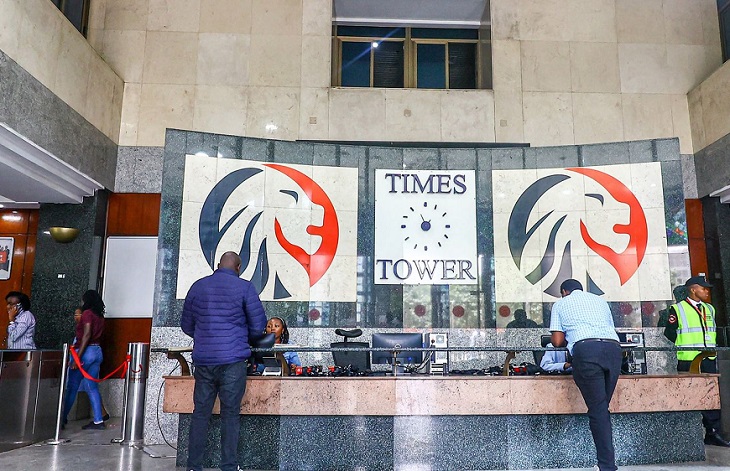Kenya is one of Africa’s fastest-growing economies, driven by a youthful population, increasing urbanization, and ongoing infrastructural development.
With a stable macroeconomic environment and a strategic location as East Africa’s business hub, the country offers lucrative investment opportunities across various sectors.
The main challenge for new businesses in Kenya has been corruption, the high cost of doing business, and some unrealistic policies, but even with that, people are setting up businesses and thriving.
Related Content: Investment Options Within Stima Sacco For Kenyans In The Diaspora
Here’s a closer look at key industries that present high potential for investors:
Agriculture
Agriculture remains Kenya’s economic mainstay, contributing significantly to GDP and employment. The country boasts diverse agro-climatic zones, making it suitable for cultivating crops such as tea, coffee, maize, wheat, sugarcane, beans, and a wide variety of horticultural products.
There is no doubt that the agriculture sector continues to play a critical role in Kenya’s economy accounting for about 20 percent of Gross Domestic Product (GDP). The sector also employs over 40 percent of the total population and more than 70 percent of the rural populace.
Investors can explore opportunities in:
Large-scale commercial farming – Expanding production of high-value crops for both local consumption and export.
Agri-processing and value addition – Establishing processing plants for tea, coffee, dairy products, and fresh produce to increase market value.
Agro-tech solutions – Investing in smart farming technologies, irrigation systems, and supply chain efficiency to boost productivity.
Real Estate
With rapid urbanization and a rising middle class, Kenya’s real estate sector continues to expand. Nairobi, Mombasa, and Kisumu, along with emerging satellite towns, are experiencing increasing demand for affordable and high-end housing.
Stats show that the sector’s output increased by 33.7 per cent from Ksh 946.7 million in 2019 to Ksh 1,265.4 million in 2023. The sector’s real output grew from 6.7 percent to 7.3 percent, over the same period. The contribution of the real estate sector to the country’s GDP has remained relatively high averaging 8.9 percent.
Investment prospects include:
Residential housing development – Addressing the shortage of affordable and mid-income housing.
Commercial property development – Office spaces, malls, and mixed-use developments remain attractive.
Real Estate Investment Trusts (REITs) – These provide investors with exposure to real estate without direct property ownership.
Renewable Energy
Kenya is a regional leader in renewable energy, with over 80% of its electricity generated from green sources. The country has vast potential in:
Geothermal energy – Kenya is the leading producer of geothermal power in Africa, with opportunities in power generation and distribution.
Solar and wind energy – Large-scale solar farms and wind energy projects offer viable investment opportunities.
Hydropower and biomass energy – Investments in small and medium-scale hydro projects and bioenergy solutions are encouraged.
ICT and Innovation
Kenya has emerged as a tech and innovation hub, often referred to as the “Silicon Savannah.” The country has a highly active startup ecosystem and a government that supports digital transformation.
In Kenya, ICT plays a crucial role in Kenya’s economy, acting as a catalyst for growth, driving innovation, and enabling digital transformation across various sectors, with the digital economy projected to contribute significantly to the GDP.
Areas of investment include:
Fintech and mobile banking – Kenya leads in mobile money innovation, with M-Pesa being a global success story.
E-commerce and digital platforms – Online shopping, logistics tech, and digital marketplaces are growing rapidly.
Software development and cybersecurity – With the digital shift, there is demand for robust cybersecurity solutions and enterprise software.
Manufacturing
The Kenyan government has identified manufacturing as a key pillar for economic growth. The share of manufacturing to Kenya’s GDP stood at 7.6 percent in 2023 in contrast to a high of 10 percent in 2014. The sector also contributed just 9,700 of the 848,100 new jobs created in the economy in 2023 or 1.14 percent.
Opportunities exist in:
Food and beverage processing – From dairy products to packaged foods, there is increasing demand for processed goods.
Textiles and apparel – Kenya benefits from preferential trade agreements like AGOA, making it an attractive hub for textile production.
Pharmaceutical and chemical manufacturing – Opportunities exist in the local production of medicines and industrial chemicals.
6. Tourism and Hospitality: Tapping into Kenya’s Natural Beauty
Kenya is globally renowned for its wildlife, pristine beaches, and cultural heritage. The tourism sector presents numerous investment avenues, including:
Luxury and eco-friendly lodges – Expanding accommodation options in major tourist destinations like the Maasai Mara and Diani Beach.
Adventure and niche tourism – Developing experiences such as cultural tourism, birdwatching, and sports tourism.
MICE (Meetings, Incentives, Conferences, and Exhibitions) tourism – Growing business tourism through modern convention centers.
Healthcare
Kenya’s healthcare sector is in urgent need of investment to improve infrastructure, service delivery, and access to quality care. Lucrative opportunities include:
Private hospitals and specialized clinics – Addressing the demand for specialized healthcare services such as oncology and cardiology.
Medical equipment supply and manufacturing – The country imports most of its medical equipment, creating a market for local manufacturing.
Health tech and telemedicine – Digital health solutions and telehealth services are gaining traction, especially in rural areas.
Kenya offers a dynamic and promising investment landscape, but like any market, due diligence is essential. Investors should consider factors such as government policies, regulatory frameworks, and market trends before committing capital. Engaging with local partners, leveraging government incentives, and adopting a long-term perspective can enhance investment success.
For those looking to tap into one of Africa’s most vibrant economies, Kenya presents vast opportunities that, when strategically explored, can yield significant returns.
Related Content: Top 5 Investment Quotes That Every Entrepreneur Must Know













